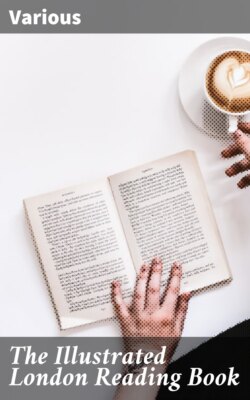Читать книгу The Illustrated London Reading Book - Various - Страница 40
На сайте Литреса книга снята с продажи.
LORD BACON.
ОглавлениеTable of Contents
In those prescient views by which the genius of Lord Bacon has often anticipated the institutions and the discoveries of succeeding times, there was one important object which even his foresight does not appear to have contemplated. Lord Bacon did not foresee that the English language would one day be capable of embalming all that philosophy can discover, or poetry can invent; that his country would at length possess a national literature of its own, and that it would exult in classical compositions, which might be appreciated with the finest models of antiquity. His taste was far unequal to his invention. So little did he esteem the language of his country, that his favourite works were composed in Latin; and he was anxious to have what he had written in English preserved in that "universal language which may last as long as books last."
It would have surprised Bacon to have been told that the most learned men in Europe have studied English authors to learn to think and to write. Our philosopher was surely somewhat mortified, when, in his dedication of the Essays, he observed, that, "Of all my other works, my Essays have been most current; for that, as it seems, they come home to men's business and bosoms." It is too much to hope to find in a vast and profound inventor, a writer also who bestows immortality on his language. The English language is the only object, in his great survey of art and of nature, which owes nothing of its excellence to the genius of Bacon.
He had reason, indeed, to be mortified at the reception of his philosophical works; and Dr. Rowley, even, some years after the death of his illustrious master, had occasion to observe, "His fame is greater, and sounds louder in foreign parts abroad than at home in his own nation; thereby verifying that Divine sentence, 'A Prophet is not without honour, save in his own country and in his own house,'" Even the men of genius, who ought to have comprehended this new source of knowledge thus opened to them, reluctantly entered into it: so repugnant are we to give up ancient errors, which time and habit have made a part of ourselves.
D'Israeli.
